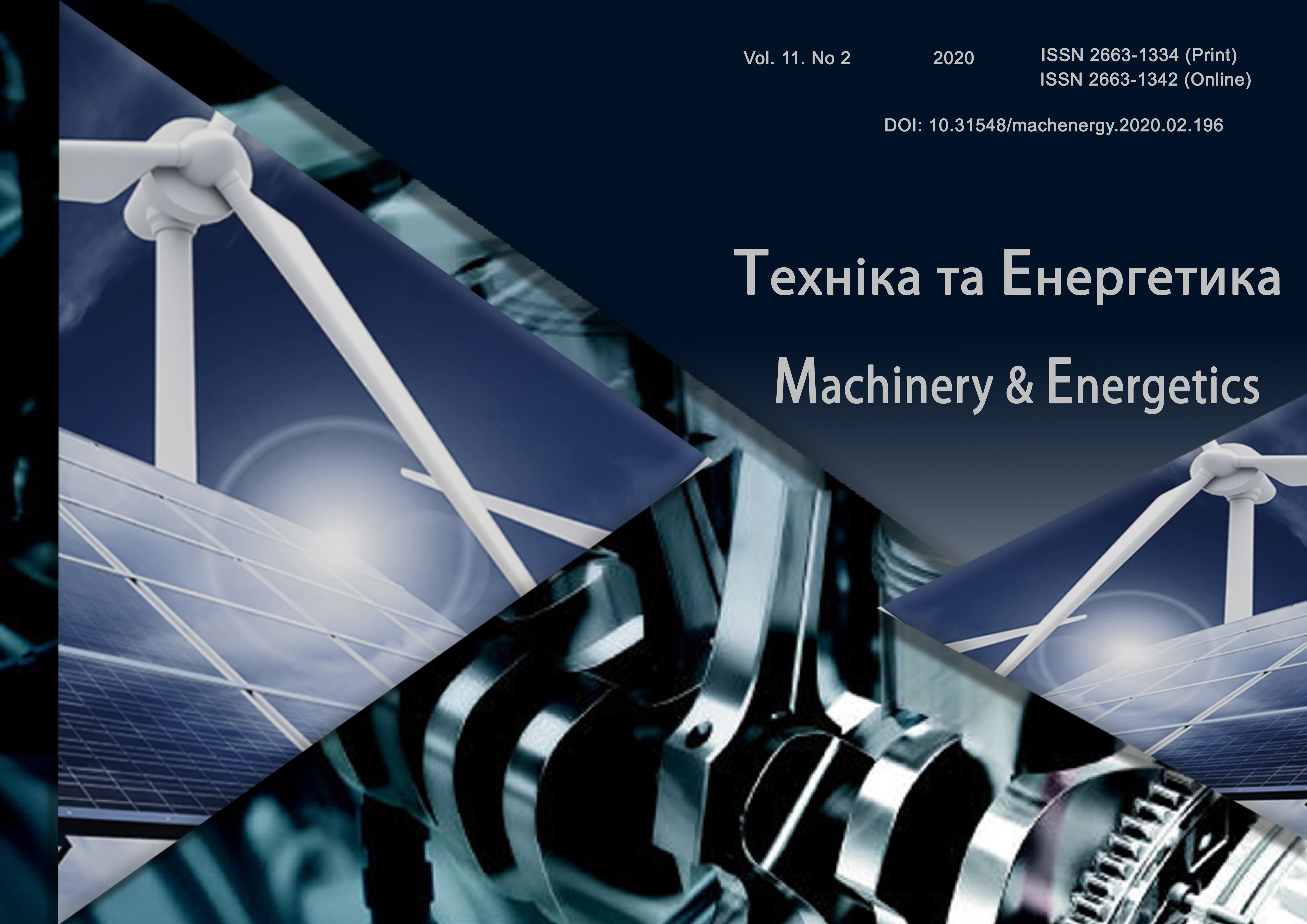Technical and technological viability of processing castor beans for small-scale enterprise
DOI:
https://doi.org/10.31548/machenergy2020.02.087Keywords:
castor seed, castor oil, small scale production, two time pressing, forpress, axillary press.Abstract
The work is devoted to the study of technology and experimental equipment of the technological line for deep processing of seeds of castor beans to castor oil for the production of oils for agricultural machinery and fodder oil cake.
Castor oil is a strategic raw material as used in many sectors of the economy, particularly in agriculture. All existing methods of processing the seeds of the castor oil plant can be divided into two methods of extracting the oil from seeds: mechanical extraction of oil, called by extrusion and dissolution of the oil in volatile organic solvents, or extraction method. These two methods are used in the technology of production of vegetable oils, either alone or in combination with one another.
For conditions of small-scale production in the article the operationally-technological scheme of processing of castor seed two-time pressing with fundamental differences from the existing technologies of processing of castor seed. Resexcellence proposed technology of processing of castor beans by the method of double pressing for conditions of small-scale production is different from the known technologies that it involves the use of a number of additional technological operations such as: calibration of seeds, husk, the husk pneumoseparation and purification of pressed oil by electro-flotation.
According to the operationally-technological scheme for processing castor seed is defined the name of equipment and quantity that you need to acquire and which will provide the appropriate level of production. Summarizes all processing modes in the processing of castor seed for castor oil with the proper equipment. By adhering to relevant technological modes of processing, will receive castor oil, quality indexes which will meet the requirements of DSTU 6757.
Proposed basictrain technology made it possible to develop a generic technical description of the mini-plant on processing of seeds of castor oil plant technical castor oil and feed meal, which is the initial requirements during project development, such a plant and determining the financial and commercial viability of small-scale enterprises.
References
Barnes D. J., Baldwin B. S. & Braasch D. A. (2009). Degradation of ricin in castor seed meal by temperature and chemical treatment. Industrial Crops and Products, 29(2-3). P. 509-515.
https://doi.org/10.1016/j.indcrop.2008.09.006
Mutlu, H., & Meier, M. A. (2010). Castor oil as a renewable resource for the chemical industry. European Journal of Lipid Science and Technology, 112(1), P. 10-30.
https://doi.org/10.1002/ejlt.200900138
Malajowicz, J., & Kusmirek, S. (2016). Characteristics and possibilities of industrial use of castor oil. Przemysl Chemiczny, 95(9), P. 1756-1760.
Deb, A., Ferdous, J., Ferdous, K., Uddin, M. R., Khan, M. R., & Rahman, M. W. (2017). Prospect of castor oil biodiesel in Bangladesh: Process development and optimization study. International Journal of Green Energy, 14(12), P. 1063-1072.
https://doi.org/10.1080/15435075.2017.1357558
Zhu, Q. L., Gu, H., & Ke, Z. (2018). Congeneration biodiesel, ricinine and nontoxic meal from castor seed. Renewable Energy, 120, P. 51-59. https://doi.org/10.1016/j.renene.2017.12.075
Hadiyanto, H., Yuliandaru, I., & Hapsari, R. (2018). Production of Biodiesel from Mixed Waste Cooking and Castor Oil. In MATEC Web of Conferences (Vol. 156, p. 03056). EDP Sciences.
https://doi.org/10.1051/matecconf/201815603056
Conejero, M. A., César, A. D. S., & Batista, A. P. (2017). The organizational arrangement of castor bean family farmers promoted by the Brazilian Biodiesel Program: A competitiveness analysis. Energy Policy, 110, P 461-470
https://doi.org/10.1016/j.enpol.2017.08.036
Moshkin V. А. (1980). Castor oil. Moscow. Ear
Gаrкоvа G. (2001) Review of new varieties and hybrids of oilseeds. suggestion. No. 12. P. 48-50.
Didur V. A. at al. (2005). Development of technology, experimental equipment of the technological line for deep processing of castor seeds into castor oil for the production of oils for agricultural machinery: GDR report. Melitopol. TSАТU.
Koshkarova V. A. (1974). Processing of castor oil seeds by extraction method without husk separation. Oil and fat industry. No. 6. P. 8
Kopeikovskii V. M. at al. (1982). Technology for the production of vegetable oils. Moscow. Light and food industry.
Kichigin V.P. (1976). Technology and chemical control of the production of vegetable oils. Moscow. Food industry.
Downloads
Published
Issue
Section
License
Relationship between right holders and users shall be governed by the terms of the license Creative Commons Attribution – non-commercial – Distribution On Same Conditions 4.0 international (CC BY-NC-SA 4.0):https://creativecommons.org/licenses/by-nc-sa/4.0/deed.uk
Authors who publish with this journal agree to the following terms:
- Authors retain copyright and grant the journal right of first publication with the work simultaneously licensed under a Creative Commons Attribution License that allows others to share the work with an acknowledgement of the work's authorship and initial publication in this journal.
- Authors are able to enter into separate, additional contractual arrangements for the non-exclusive distribution of the journal's published version of the work (e.g., post it to an institutional repository or publish it in a book), with an acknowledgement of its initial publication in this journal.
- Authors are permitted and encouraged to post their work online (e.g., in institutional repositories or on their website) prior to and during the submission process, as it can lead to productive exchanges, as well as earlier and greater citation of published work (See The Effect of Open Access).

